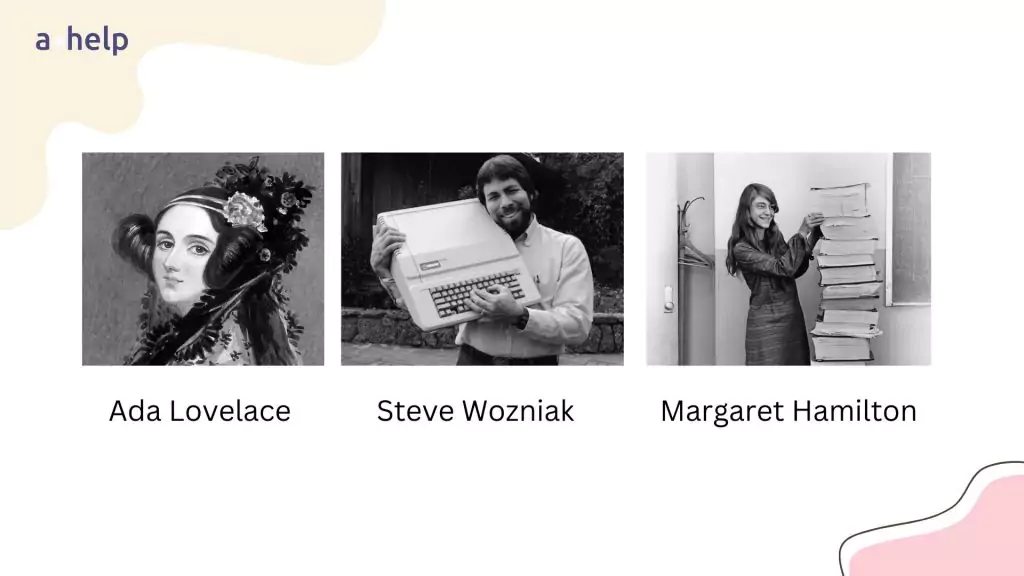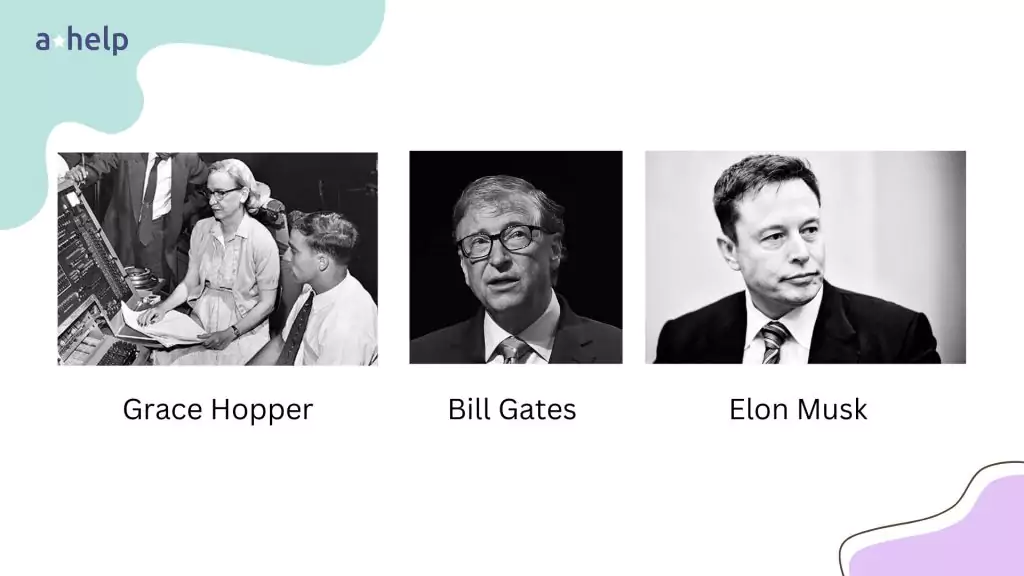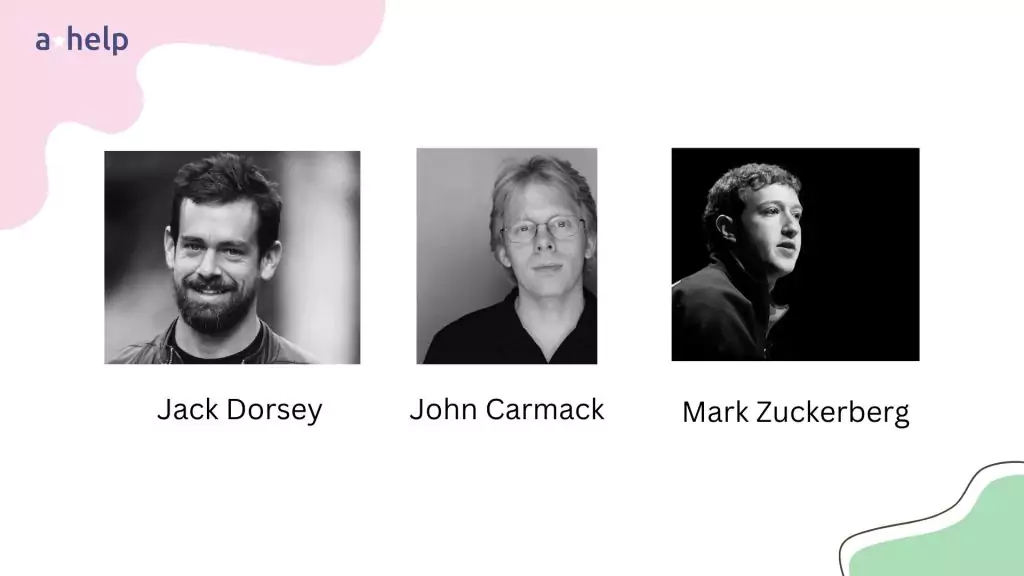Career calling is a sign that many college students and recent graduates prick their ears to hear. Many are hungry for something progressive, cutting-edge, and lucrative. You may already know that programming checks all of these boxes. But does Computer Science major fall under the easy and fast learning category? Sadly no. In the state of things, coders-in-the-making are weighing their chances of getting good experience with their major and building a rock-solid career either at college or university or by self-teaching.

✅ AI Essay Writer ✅ AI Detector ✅ Plagchecker ✅ Paraphraser
✅ Summarizer ✅ Citation Generator
Key Takeaways:
- College offers structured programming education, but rising costs make self-study increasingly attractive.
- Self-taught coders prioritize flexibility and hands-on experience, while college-trained ones benefit from structure and mentorship.
- Pioneers like Lovelace and Zuckerberg show that self-learning can lead to monumental tech industry impacts.
Self-Taught Coder Vs. College Programmer
The two traditional ways to excel at programming have their merits and challenges. On the one hand, a college degree in computer science provides a solid foundation and understanding of how databases, servers, and clients interact, which is essential for jobs in web development and other IT fields.
Conventional school is not just about coding, as it may seem. Students dive deep into computational science, math, and other subjects in colleges and universities. The University of Wisconsin-Madison revealed that between 2018 and 2022, the major with the most significant growth was data science, which added 914 students since its 2018 inception.
College offers a structured learning process, making students tackle subjects they might not need. For instance, discrete math courses or mandatory English classes could help unexpectedly in one’s career. One benefit emphasized is the feedback and support system: having classmates to collaborate with, professors to guide you, and the prestige of a degree which can open doors, especially when applying for jobs in different countries.

However, many argue that the rising tuition costs make college seem like more of a debt trap or a luxury only the wealthy can afford. Students online said,
“College is becoming more of either a scam to push children into debt slavery or as a wealth check so only the affluent can live a quality life with quality jobs.”
Others note that with resources like YouTube, Udemy, and forums filled with experts, high-quality learning materials are easily accessible online.
“There’s a belief that the only thing that will make you a good programmer is programming, simply put it, practical experience.”
That said, it’s not always about the material but how it’s delivered. The college provides a social environment, societal validation, and a structured way of learning, which can help keep students motivated. However, even with a college degree, most agree that self-study is crucial because technology evolves quickly. And still, together with a college degree, many experienced programmers always recommend self-studying, no matter what the topic or field.
5 Differences Between a Self-Taught and a College Programmer
While students are mulling over what the best decision is for them, each path has its unique set of challenges, advantages, and experiences. Both self-taught and college-educated programmers can be immensely successful, but the road they traverse varies significantly in several key aspects.
Reason 1. Structured Learning vs. Flexible Curriculum
College programmers, studying within the confines of a formal academic institution, undergo a structured and rigorous curriculum. This curriculum often encompasses not only the practical aspects of coding but also the underlying theories, algorithms, and principles that serve as the backbone of computer science. The emphasis here is on breadth and depth, ensuring students receive a holistic view of the subject. Furthermore, these courses are curated by educators and industry professionals, ensuring that the content is relevant and standardized. On the downside, this structured approach might not always be in sync with current industry trends or may cover topics that may not be of immediate practical use.
In contrast, coders who self-study thrive on flexibility. They chart their own course, deciding what languages to learn, which projects to undertake, and at what pace to progress. This autonomy allows them to swiftly adapt to industry needs, focusing their energy on specific, immediate requirements of the job market. However, this freedom comes with challenges. Without a predefined roadmap, self-learners may sometimes find themselves overwhelmed, unsure of the next step, or potentially missing out on foundational concepts that a structured curriculum would ensure.

If you are a programmer who wants to have more structure in their life and future application process, you must definitely take a look at specific books like Cracking the Coding Interview. By reading necessary literature, you’ll have a better understanding of how to build your future professional career no matter what path you choose.
Reason 2. Mentorship & Community
Being part of a college or university program offers students easy access to a plethora of mentors in the form of professors, alumni, and even peers. These mentors can provide invaluable insights, answer complex queries, and guide students through the intricacies of the programming world. Moreover, the sense of community within an academic setting is strong. Collaborative projects, group studies, and peer feedback sessions are commonplace, fostering a conducive learning environment:
“Exposure is the most important benefit of the college experience.”
Self-taught programmers, on the other hand, often embark on their learning journey in isolation. While they might have the entire internet at their disposal, finding a mentor or a like-minded community can be challenging. Online forums, webinars, and platforms like Meetup do bridge this gap to an extent, but the initial effort to find these resources rests solely on the learner.
Reason 3. Portfolio vs. Degree
For a self-taught programmer, showcasing their skills to potential employers often hinges on an impressive portfolio. Given the lack of formal education credentials, these programmers must demonstrate their prowess through tangible projects, freelance assignments, and real-world applications they’ve built. A well-crafted portfolio provides evidence of their abilities, coding style, and problem-solving approach.
In contrast, college programmers have the leverage of a recognized degree from an institution, which can serve as a testament to their skills and knowledge. While many still choose to maintain portfolios, the emphasis on having one is less, as their educational qualifications and associated internships or co-ops often speak volumes.
Reason 4. Pace of Learning
The college environment, with its semesters, deadlines, and exams, instills a consistent, albeit sometimes fast-paced, learning regimen in students. The syllabus moves at a predetermined pace, ensuring a systematic progression through topics, regardless of individual preferences or challenges.
Conversely, self-taught programmers enjoy the liberty to set their pace. They can deep-dive into subjects of interest, take breaks, or switch between topics as they see fit. While this can be a significant advantage, especially for those balancing other responsibilities, it also demands immense discipline and motivation to ensure consistent progress.
Reason 5. Financial Investment & Commitment
Pursuing a formal college education often requires a substantial financial investment. Tuition fees, coupled with potential student loans, can be daunting. The time commitment is significant as well, with most programs lasting at least three to four years. Some college dropouts shared their thoughts:
“There is a huge collision that’s about to happen: increasing costs for post-secondary education; a middle class that will no longer be able to afford said post-secondary education for their kids; and free, quality, ubiquitous educational content like Khan academy. I’m not quite sure how things will play out. But things like Khan academy could pop the educational industry bubble, at best forcing lost cost quality formal education, and at worst, resulting in ubiquitous access to informal education to those that put in the effort.”
Self-learners, on the other hand, benefit from a plethora of free or relatively low-cost online resources. They can customize their learning path based on budget constraints and are not tied down to long-term financial or time commitments. This flexibility, however, also means that there’s less external pressure to stick with the journey, making intrinsic motivation crucial for those who choose this path.
Self-Taught Programmers Who Made It Big: Inspirational Stories
In the realm of software engineering, there have been numerous figures who, without formal training, have carved out legendary careers. These self-taught pioneers have not only shaped the technological world we live in but have also proven that dedication, passion, and resourcefulness can outweigh institutional education.
Ada Lovelace, for instance, from the early 1800s, is credited as the first software engineer, crafting algorithms for Charles Babbage’s Analytical Engine—a machine that was never built. Lacking formal software training, Lovelace leaned on her profound mathematical and logical understanding, alongside her interactions with the era’s technological luminaries.
Fast forward to the space race, Margaret Hamilton emerged as a linchpin for the Apollo project, crafting the onboard flight software that journeyed mankind to the moon. Despite her pivotal role, Hamilton was largely self-taught, with her learning stemming from exhaustive manual reading and independent programming. Steve Wozniak, the renowned co-founder of Apple, constructed the Apple I and Apple II computers with his self-acquired skills, challenging the notion that formal education was a prerequisite for success in software design.

Remarkably, the list goes on. Grace Hopper, a rear admiral in the U.S. Navy and an early programmer of the Harvard Mark I computer, stands as a beacon of inspiration for aspiring software engineers. Then there’s Elon Musk, who, beyond his vast entrepreneurial achievements, stands out as a self-taught software engineer. Without formal software training, Musk meticulously learned by reviewing software codes, leveraging his physics background to grasp the intricacies of software engineering.

Microsoft’s co-founder, Bill Gates, another emblematic figure, dropped out of Harvard to delve deeper into software engineering. Gates’ self-guided journey began with BASIC programming, learned from a book. His narrative is a testament to the limitless possibilities that self-taught software engineers can explore. Twitter’s co-founder and CEO, Jack Dorsey, mirrors Gates’ trajectory. Forgoing formal college education, Dorsey amassed his software knowledge through books and online resources, emphasizing the role of the internet in democratizing learning.

Facebook’s founder, Mark Zuckerberg, started coding at the tender age of 12. This self-taught prodigy went on to create multiple software programs, including one that Microsoft procured for a staggering $19 million. Finally, the video gaming sphere boasts John Carmack, a self-taught maestro, co-founder of id Software, and the brain behind iconic franchises like Doom and Quake. At 13, Carmack embarked on his journey with BASIC programming books, subsequently dropping out of school to champion software development at Softdisk. His meteoric rise culminated in co-founding id Software, underlining the heights self-taught professionals can reach.
In essence, these trailblazers—from Lovelace to Carmack—highlight the boundless prospects of self-learning. They emphasize that with resilience, dedication, and the right resources, anyone, irrespective of their educational background, can redefine industries, create revolutionary products, and inscribe their names in the annals of software engineering. Their stories stand as an undying testament to the power of self-directed learning in the realm of technology.
Follow us on Reddit for more insights and updates.





Comments (0)
Welcome to A*Help comments!
We’re all about debate and discussion at A*Help.
We value the diverse opinions of users, so you may find points of view that you don’t agree with. And that’s cool. However, there are certain things we’re not OK with: attempts to manipulate our data in any way, for example, or the posting of discriminative, offensive, hateful, or disparaging material.